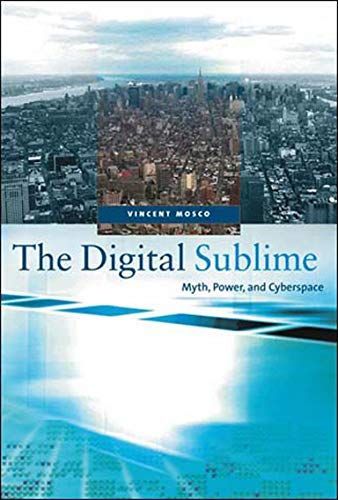
The Digital Sublime Myth, Power, and Cyberspace
Interpreting the myths of the digital age: why we believed in the power of cyberspace to open up a new world. The digital era promises, as did many other technological developments before it, the transformation of society: with the computer, we can transcend time, space, and politics-as-usual. In The Digital Sublime, Vincent Mosco goes beyond the usual stories of technological breakthrough and economic meltdown to explore the myths constructed around the new digital technology and why we feel compelled to believe in them. He tells us that what kept enthusiastic investors in the dotcom era bidding up stocks even after the crash had begun was not willful ignorance of the laws of economics but belief in the myth that cyberspace was opening up a new world. Myths are not just falsehoods that can be disproved, Mosco points out, but stories that lift us out of the banality of everyday life into the possibility of the sublime. He argues that if we take what we know about cyberspace and situate it within what we know about culture—specifically the central post-Cold War myths of the end of history, geography, and politics—we will add to our knowledge about the digital world; we need to see it "with both eyes"—that is, to understand it both culturally and materially.After examining the myths of cyberspace and going back in history to look at the similar mythic pronouncements prompted by past technological advances—the telephone, the radio, and television, among others—Mosco takes us to Ground Zero. In the final chapter he considers the twin towers of the World Trade Center—our icons of communication, information, and trade—and their part in the politics, economics, and myths of cyberspace.